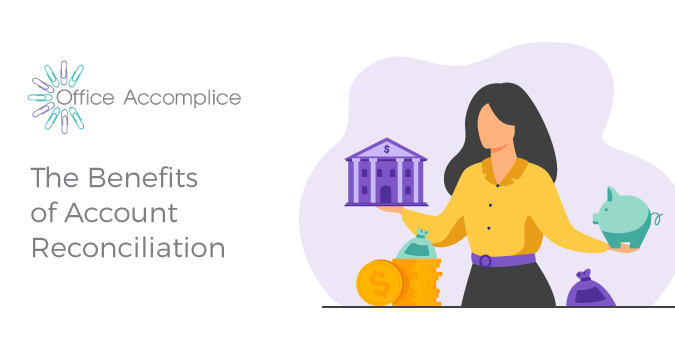Account reconciliation is one of the least understood and most important parts of financial record keeping. Basically, reconciling is comparing your records to your bank statements and noting any discrepancies. Why should you do it? Reconciling your books regularly is a lot like cleaning your house regularly. If you clean your house on a regular schedule, it stays neat. If you rarely do it, then it becomes a major chore when you must do it—like when you have guests.
Why Account Reconciliation is Important
But, like cleaning your house, reconciling is a necessary task. You can’t entertain guests if your house isn’t clean (or, if you do, please don’t invite me to visit). Likewise, you can’t be sure your accounts are accurate if you don’t have a reconciliation process. And, if you can’t be sure your accounts are accurate, you don’t know how much money you have to spend or if there’s a major mistake somewhere. In other words, you can’t make good decisions without regular reconciliation.
What should you look for when you’re reviewing your books? There are actually a number of things that can go wrong. Glitches in your accounting program or the bank’s software can happen so that, for example, multiple transactions don’t download for a week or more. (You may think that your bank is infallible, but trust me on this: they’re not.)This means you could be missing out on tax deductible expenses. Another problem that I see frequently is glitches that cause some income to be reported twice.
What else should you look for when reconciling your books? You might find that one of your vendors never received a check, a situation you should address right away. Another issue that we see all the time is that the owner of a company writes his or herself a check and doesn’t cash it.
There are more serious issues that crop up, as well. One of our clients had a check altered, adding $1000 to the amount that was withdrawn from the client’s account. Reconciliation allowed us to detect the problem and correct it before it went very far.
How to Reconcile
What is account reconciliation, actually? It is not just the process of downloading your transactions; it’s more thorough than that. But that doesn’t mean it has to be a chore. There’s a process to automate it in Quickbooks and other accounting software. The app automatically checks your records against the bank’s and highlights any differences. You don’t need to examine everything yourself; you only need to investigate potential problems. It’s that easy, a lot easier than cleaning the bathroom, anyway.
However, you need to watch out. Some accounting applications say they have a reconciliation function, but they really don’t. Be sure you’re getting the real deal.
So reconciling is an important tool to help you identify fraud and fix mistakes. You will also find that regular reconciliation allows you to more easily run reports at a moment’s notice—and you will know those reports are accurate. Just like avoiding dust bunnies, it is a simple process if you do it regularly.
Having trouble reconciling your accounts? Contact Office Accomplice for help.


